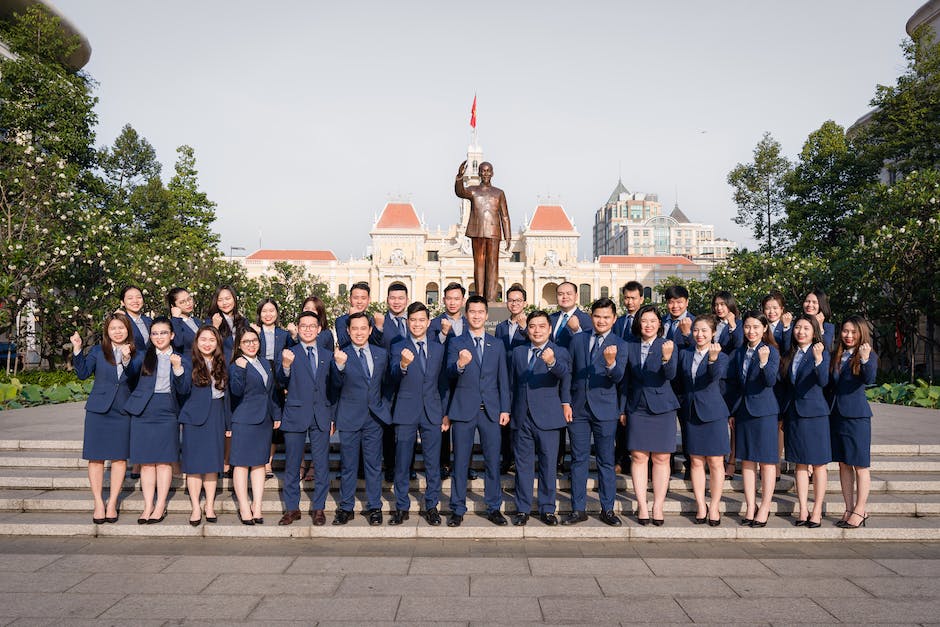Table of Contents
- Introduction
- Sakshi Malik’s Journey to Olympic Glory
- The Impact of Sakshi Malik’s Win on Indian Wrestling
- Sakshi Malik: Breaking Gender Stereotypes in Sports
- Analyzing Sakshi Malik’s Winning Technique
- Sakshi Malik: A Role Model for Young Athletes
- The Road to Rio: Sakshi Malik’s Olympic Preparation
- Celebrating Sakshi Malik’s Historic Olympic Medal
- Sakshi Malik’s Inspirational Story of Perseverance
- Sakshi Malik’s Legacy in Indian Sports
- Q&A
- Conclusion
“Sakshi Malik: Defying the odds, making history.”
Introduction
Sakshi Malik made history at the 2016 Rio Olympics by becoming the first Indian female wrestler to win a medal. Her bronze medal victory in the 58kg freestyle wrestling category was a momentous achievement for both her and her country. Malik’s triumph showcased her determination, skill, and resilience on the world stage, solidifying her status as a trailblazer in Indian sports.
Sakshi Malik’s Journey to Olympic Glory
Sakshi Malik’s journey to Olympic glory is a story of determination, perseverance, and hard work. Born on September 3, 1992, in Rohtak, Haryana, Sakshi was introduced to wrestling at a young age by her father, who himself was a wrestler. She quickly fell in love with the sport and began training rigorously to hone her skills.
Sakshi’s hard work paid off when she won a bronze medal at the 2010 Junior World Championships. This victory marked the beginning of her successful wrestling career and set her on the path to Olympic glory. Over the years, Sakshi continued to train tirelessly, pushing herself to the limit in pursuit of her dream of representing India on the world stage.
In 2016, Sakshi Malik made history by becoming the first Indian female wrestler to win an Olympic medal. Competing in the 58kg category at the Rio Olympics, Sakshi faced tough competition from some of the best wrestlers in the world. However, she remained focused and determined, never losing sight of her goal.
In the quarterfinals, Sakshi faced a formidable opponent from Kyrgyzstan. Despite falling behind early in the match, she staged a remarkable comeback, scoring crucial points in the final moments to secure a spot in the semifinals. Her victory in the quarterfinals guaranteed her at least a bronze medal, but Sakshi was not content with just a bronze. She wanted more.
In the semifinals, Sakshi faced another tough challenge in the form of a wrestler from Kazakhstan. Once again, she showed her fighting spirit and determination, putting up a valiant effort against her opponent. Though she ultimately lost the match, Sakshi’s performance earned her the admiration of fans and fellow athletes alike.
In the bronze medal match, Sakshi faced a wrestler from Kyrgyzstan, the same opponent she had defeated in the quarterfinals. This time, however, the stakes were higher. With the entire nation watching and cheering her on, Sakshi put on a masterful display of skill and determination, outclassing her opponent to secure a 8-5 victory and claim the bronze medal.
Sakshi’s historic victory at the Rio Olympics was a moment of pride for India and a testament to her hard work and dedication. Her journey to Olympic glory serves as an inspiration to aspiring athletes everywhere, showing that with determination and perseverance, anything is possible.
In the years since her Olympic triumph, Sakshi Malik has continued to excel in the sport of wrestling, winning numerous medals at international competitions and earning accolades for her performance. She remains a role model for young athletes, proving that with hard work and dedication, dreams can become a reality.
Sakshi Malik’s journey to Olympic glory is a story of triumph over adversity, of perseverance in the face of challenges, and of unwavering determination to succeed. Her legacy will inspire generations of athletes to come, showing them that with hard work and dedication, anything is possible.
The Impact of Sakshi Malik’s Win on Indian Wrestling
Sakshi Malik’s historic bronze medal win at the 2016 Rio Olympics not only made her a household name in India but also had a significant impact on the sport of wrestling in the country. Malik became the first Indian female wrestler to win an Olympic medal, breaking barriers and inspiring a new generation of athletes to pursue their dreams in the sport.
Malik’s victory was a testament to her hard work, dedication, and perseverance. She had to overcome numerous challenges and obstacles to reach the pinnacle of success in her sport. Her journey to the Olympics was not easy, but she never gave up and continued to push herself to be the best wrestler she could be.
Malik’s win had a ripple effect on Indian wrestling, inspiring more young girls to take up the sport and pursue their passion for wrestling. Her success showed that with hard work and determination, anything is possible, regardless of gender or background. Malik became a role model for aspiring wrestlers, proving that with dedication and perseverance, they too could achieve their goals and make their mark on the world stage.
Malik’s win also brought attention to the lack of support and resources for female wrestlers in India. Despite the success of male wrestlers like Sushil Kumar and Yogeshwar Dutt, female wrestlers often faced discrimination and neglect in terms of training facilities, coaching, and financial support. Malik’s victory highlighted the need for more investment in women’s wrestling and the importance of providing equal opportunities for female athletes to succeed in the sport.
Following Malik’s win, there was a renewed focus on women’s wrestling in India. The government and sports authorities started to pay more attention to the development of female wrestlers, providing them with better training facilities, coaching, and financial support. The success of wrestlers like Malik also led to the establishment of more wrestling academies and training centers for young girls, creating a pathway for them to pursue their dreams in the sport.
Malik’s win also had a positive impact on the perception of women in sports in India. She shattered stereotypes and proved that women could excel in traditionally male-dominated sports like wrestling. Her success inspired more girls to break free from societal norms and pursue their passion for sports, regardless of gender stereotypes or societal expectations.
In conclusion, Sakshi Malik’s Olympic triumph had a profound impact on Indian wrestling, inspiring a new generation of athletes to pursue their dreams in the sport. Her victory not only broke barriers and shattered stereotypes but also highlighted the need for more support and resources for female wrestlers in India. Malik’s success will continue to inspire and motivate young girls to follow in her footsteps and make their mark on the world stage.
Sakshi Malik: Breaking Gender Stereotypes in Sports
Sakshi Malik’s Olympic Triumph
Sakshi Malik made history at the 2016 Rio Olympics when she became the first Indian female wrestler to win a medal. Her bronze medal victory in the 58kg freestyle wrestling category not only brought glory to her country but also shattered gender stereotypes in the world of sports. Malik’s journey to Olympic success was not an easy one, but her determination, hard work, and perseverance paid off in the end.
Born on September 3, 1992, in Rohtak, Haryana, Sakshi Malik was introduced to wrestling at a young age. Despite facing opposition from her family and society, she continued to pursue her passion for the sport. Malik’s breakthrough came in 2010 when she won a bronze medal at the Junior World Championships in the 58kg category. This victory marked the beginning of her rise to prominence in the wrestling world.
Malik’s road to the Olympics was filled with challenges and setbacks. She had to overcome financial constraints, lack of proper training facilities, and societal pressure to excel in a male-dominated sport. However, Malik remained undeterred and focused on her goal of representing India at the highest level. Her hard work and dedication eventually paid off when she qualified for the 2016 Rio Olympics.
At the Olympics, Malik faced tough competition from some of the best wrestlers in the world. In the quarterfinals, she lost to Valeria Koblova of Russia but bounced back in the repechage round to secure a bronze medal. Malik’s victory not only made her the first Indian female wrestler to win an Olympic medal but also inspired a generation of young girls to pursue their dreams in sports.
Malik’s triumph at the Olympics was a significant milestone for women’s wrestling in India. It not only showcased the talent and potential of female athletes but also highlighted the need for equal opportunities and support for women in sports. Malik’s success served as a reminder that gender should not be a barrier to achieving greatness in any field.
In the aftermath of her Olympic victory, Malik became a role model for aspiring athletes, especially young girls. She used her platform to advocate for gender equality in sports and encourage more girls to take up wrestling. Malik’s story inspired many to break free from societal norms and pursue their passions with courage and determination.
Malik’s journey from a small town in Haryana to the Olympic podium is a testament to the power of perseverance and belief in oneself. Her success not only brought pride to her country but also paved the way for more women to excel in sports. Malik’s legacy will continue to inspire generations of athletes to dream big and work hard to achieve their goals.
In conclusion, Sakshi Malik’s Olympic triumph was a historic moment for Indian sports and a significant step towards breaking gender stereotypes in wrestling. Her journey from humble beginnings to Olympic glory is a story of resilience, determination, and courage. Malik’s success serves as a reminder that with hard work and dedication, anything is possible. She has left a lasting impact on the world of sports and will forever be remembered as a trailblazer for women in wrestling.
Analyzing Sakshi Malik’s Winning Technique

Sakshi Malik’s Olympic triumph in 2016 was a historic moment for Indian wrestling. She became the first Indian female wrestler to win a medal at the Olympics, bringing home the bronze in the 58kg category. Malik’s victory was not only a personal achievement but also a testament to her hard work, dedication, and skill as an athlete.
Malik’s winning technique can be analyzed to understand what sets her apart from her competitors. One key aspect of her wrestling style is her agility and quick reflexes. Malik is known for her ability to move swiftly on the mat, dodging her opponent’s attacks and launching her own offensive moves. This agility allows her to outmaneuver her opponents and gain the upper hand in a match.
In addition to her agility, Malik also possesses great strength and power. She is able to execute powerful takedowns and throws, using her strength to overpower her opponents and control the pace of the match. Malik’s combination of speed and strength makes her a formidable opponent on the wrestling mat.
Another important aspect of Malik’s winning technique is her tactical awareness. She is able to read her opponent’s movements and anticipate their next move, allowing her to counter effectively and take advantage of any openings. Malik’s ability to think quickly and adapt to changing situations is a key factor in her success as a wrestler.
Malik’s mental toughness is also a crucial component of her winning technique. She is able to stay focused and composed under pressure, maintaining her concentration and composure even in the heat of competition. This mental strength allows her to perform at her best when it matters most, making her a formidable opponent for any wrestler.
Overall, Malik’s winning technique is a combination of agility, strength, tactical awareness, and mental toughness. These qualities have helped her achieve success on the wrestling mat and make her a force to be reckoned with in the world of women’s wrestling.
Looking ahead, Malik’s Olympic triumph has inspired a new generation of female wrestlers in India. Her success has shown that with hard work, dedication, and skill, anything is possible. Malik’s victory has paved the way for other Indian female wrestlers to dream big and strive for greatness on the international stage.
In conclusion, Sakshi Malik’s Olympic triumph is a testament to her skill, determination, and winning technique as a wrestler. Her agility, strength, tactical awareness, and mental toughness have set her apart from her competitors and made her a true champion. Malik’s victory has not only made history but has also inspired a new generation of female wrestlers to follow in her footsteps and achieve their own dreams of Olympic glory.
Sakshi Malik: A Role Model for Young Athletes
Sakshi Malik’s Olympic triumph in 2016 was a historic moment for Indian wrestling and a source of inspiration for young athletes around the world. Born on September 3, 1992, in Rohtak, Haryana, Sakshi Malik began her wrestling career at a young age and quickly rose through the ranks to become one of India’s most successful female wrestlers.
Sakshi’s journey to Olympic glory was not without its challenges. She faced criticism and skepticism from those who doubted her abilities and questioned her decision to pursue a career in wrestling. However, Sakshi remained focused and determined, training tirelessly to improve her skills and prove her critics wrong.
In 2016, Sakshi Malik made history by becoming the first Indian female wrestler to win an Olympic medal. Competing in the 58kg freestyle wrestling category at the Rio Olympics, Sakshi faced tough competition from some of the world’s best wrestlers. However, she showed incredible resilience and determination, fighting her way to a bronze medal and securing her place in the annals of Indian sporting history.
Sakshi’s Olympic triumph was a testament to her hard work, dedication, and perseverance. It was also a shining example of the power of belief and self-confidence in achieving success. Sakshi’s journey from a small town in Haryana to the Olympic podium serves as a source of inspiration for young athletes everywhere, showing them that with hard work and determination, anything is possible.
Sakshi Malik’s success on the wrestling mat has also had a significant impact on the sport in India. Her Olympic medal win helped raise the profile of wrestling in the country and inspired a new generation of young athletes to take up the sport. Sakshi’s success has also paved the way for other female wrestlers to follow in her footsteps, breaking down barriers and challenging stereotypes in a traditionally male-dominated sport.
Sakshi Malik’s Olympic triumph is a reminder that success is not determined by gender or background, but by hard work, dedication, and a never-say-die attitude. Her story is a testament to the power of perseverance and self-belief in overcoming obstacles and achieving one’s goals.
As a role model for young athletes, Sakshi Malik’s journey serves as a source of inspiration and motivation. Her story is a reminder that with determination and hard work, anything is possible. Young athletes can look to Sakshi’s example and draw strength from her success, knowing that they too can achieve their dreams with dedication and perseverance.
In conclusion, Sakshi Malik’s Olympic triumph is a shining example of the power of belief and determination in achieving success. Her journey from a small town in Haryana to the Olympic podium is a source of inspiration for young athletes around the world, showing them that with hard work and perseverance, anything is possible. Sakshi Malik’s story is a reminder that success knows no boundaries and that with dedication and self-belief, dreams can become a reality.
The Road to Rio: Sakshi Malik’s Olympic Preparation
Sakshi Malik’s Olympic Triumph
Sakshi Malik, the Indian wrestler, made history at the 2016 Rio Olympics by becoming the first Indian female wrestler to win a medal. Her bronze medal victory in the 58kg freestyle wrestling category was a moment of pride for the entire nation. But Sakshi’s journey to Olympic glory was not an easy one. It was a result of years of hard work, dedication, and perseverance.
Sakshi started wrestling at a young age, inspired by her grandfather who was also a wrestler. She trained rigorously under the guidance of her coach, Ishwar Dahiya, who played a crucial role in shaping her career. Sakshi’s talent and determination were evident from a young age, and she quickly rose through the ranks in the wrestling world.
As Sakshi’s career progressed, she faced numerous challenges and setbacks. She struggled to secure funding for her training and competitions, and often had to rely on the support of her family and well-wishers. Despite these obstacles, Sakshi remained focused on her goal of representing India at the Olympics.
In the lead-up to the 2016 Rio Olympics, Sakshi intensified her training and focused on improving her technique and strength. She participated in various international tournaments to gain experience and exposure. Sakshi’s hard work paid off when she qualified for the Olympics, becoming the first Indian female wrestler to do so.
The road to Rio was not easy for Sakshi. She faced tough competition from wrestlers around the world, many of whom were more experienced and better funded. But Sakshi remained undeterred, relying on her skills and determination to overcome the odds.
At the 2016 Rio Olympics, Sakshi faced tough opponents in the early rounds of the competition. But she fought bravely, showcasing her talent and resilience. In the quarterfinals, Sakshi faced a formidable opponent from Kyrgyzstan and emerged victorious, securing her place in the semifinals.
In the semifinals, Sakshi faced a tough challenge from a wrestler from Russia. Despite putting up a strong fight, Sakshi lost the match but still had a chance to win a medal through the repechage rounds. In the bronze medal match, Sakshi faced a wrestler from Mongolia and emerged victorious, securing her place on the podium.
Sakshi’s bronze medal victory was a moment of joy and pride for the entire nation. She became an inspiration for young athletes across India, showing them that with hard work and determination, anything is possible. Sakshi’s triumph at the Olympics was a testament to her talent, dedication, and perseverance.
In the years following her Olympic victory, Sakshi continued to excel in the sport of wrestling. She won numerous medals at international tournaments and became a role model for aspiring athletes. Sakshi’s journey from a small town in Haryana to Olympic glory is a story of determination, courage, and resilience.
Sakshi Malik’s Olympic triumph will always be remembered as a shining moment in Indian sports history. Her journey to Rio and her victory at the Olympics will continue to inspire generations of athletes to dream big and work hard to achieve their goals. Sakshi Malik is not just a wrestler; she is a symbol of hope and perseverance for millions of people around the world.
Celebrating Sakshi Malik’s Historic Olympic Medal
Sakshi Malik made history at the 2016 Rio Olympics when she became the first Indian female wrestler to win an Olympic medal. Her bronze medal victory in the 58kg freestyle wrestling category not only brought glory to her country but also inspired a generation of young athletes.
Malik’s journey to Olympic success was not an easy one. Hailing from a small village in Haryana, she faced numerous challenges and obstacles along the way. Despite the lack of resources and support, Malik remained determined and focused on her goal of representing India on the world stage.
Her hard work and dedication paid off when she secured a spot on the Indian wrestling team for the Rio Olympics. Malik’s performance at the Games was nothing short of spectacular. She fought fiercely in every match, displaying skill, strength, and determination.
In the quarterfinals, Malik faced a tough opponent from Kyrgyzstan. Despite falling behind early in the match, she staged a remarkable comeback to secure a victory and advance to the semifinals. Although she ultimately lost in the semifinals, Malik’s fighting spirit never wavered.
In the bronze medal match, Malik faced Aisuluu Tynybekova from Kyrgyzstan. It was a closely contested match, with both wrestlers giving their all. In the end, Malik emerged victorious, winning the bronze medal and etching her name in the annals of Indian sports history.
Malik’s Olympic triumph was a watershed moment for Indian wrestling. It not only showcased the talent and potential of Indian female wrestlers but also highlighted the importance of gender equality in sports. Malik’s success inspired a new generation of young girls to take up wrestling and pursue their dreams.
In the aftermath of her Olympic victory, Malik became a national hero in India. She was showered with accolades and awards, including the prestigious Rajiv Gandhi Khel Ratna Award. Malik’s success also brought attention to the sport of wrestling in India, leading to increased support and funding for aspiring athletes.
Malik’s journey from a small village in Haryana to the Olympic podium is a testament to the power of perseverance and determination. Her story serves as a source of inspiration for athletes around the world, showing that with hard work and dedication, anything is possible.
As we celebrate Sakshi Malik’s historic Olympic medal, we are reminded of the importance of supporting and empowering female athletes. Malik’s success has paved the way for future generations of Indian wrestlers, showing them that they too can achieve greatness on the world stage.
In conclusion, Sakshi Malik’s Olympic triumph will forever be remembered as a defining moment in Indian sports history. Her journey from obscurity to Olympic glory is a testament to the power of perseverance, determination, and hard work. Malik’s victory has inspired a generation of young athletes and has brought pride and joy to the people of India. As we celebrate her historic achievement, let us also remember the importance of supporting and empowering female athletes around the world.
Sakshi Malik’s Inspirational Story of Perseverance
Sakshi Malik’s Olympic triumph in 2016 was a momentous occasion not only for her, but for the entire nation of India. Her victory in the women’s freestyle wrestling event at the Rio Olympics marked a historic achievement, as she became the first Indian female wrestler to win an Olympic medal. Malik’s journey to success was not an easy one, but her perseverance and determination are truly inspirational.
Born on September 3, 1992, in Rohtak, Haryana, Sakshi Malik was introduced to wrestling at a young age. Despite facing opposition from her family and societal norms that discouraged girls from participating in sports, Malik pursued her passion for wrestling with unwavering dedication. She trained tirelessly, overcoming numerous obstacles along the way.
Malik’s breakthrough moment came in 2010 when she won a bronze medal at the Junior World Championships in the 58kg category. This victory marked the beginning of her rise to prominence in the world of wrestling. Over the years, Malik continued to hone her skills and compete in various national and international tournaments, steadily making a name for herself in the sport.
In 2014, Malik won a silver medal at the Commonwealth Games in Glasgow, further solidifying her reputation as a formidable wrestler. However, it was her performance at the 2016 Rio Olympics that truly catapulted her to stardom. Malik’s journey to the Olympics was not without its challenges, as she had to overcome injuries and setbacks leading up to the Games. Despite the odds stacked against her, Malik remained focused on her goal of winning an Olympic medal.
In the quarterfinals of the women’s freestyle wrestling event at the Rio Olympics, Malik faced a tough opponent from Kyrgyzstan. Trailing by 5-0 at one point, Malik staged a remarkable comeback, scoring crucial points in the final moments of the match to secure a 8-5 victory. This win propelled her into the semifinals, where she faced another formidable opponent from Belarus. Malik put up a valiant fight but ultimately fell short, losing the match and moving into the repechage rounds.
In the repechage rounds, Malik faced opponents from Mongolia and Kazakhstan, defeating them convincingly to secure a spot in the bronze medal match. In a tense and closely contested bout, Malik emerged victorious, defeating her opponent from Kyrgyzstan to clinch the bronze medal. The moment of triumph was met with jubilation and pride, not only from Malik herself but from the entire nation of India.
Malik’s Olympic triumph is a testament to her resilience, determination, and unwavering spirit. Despite facing numerous challenges and setbacks throughout her career, she never wavered in her pursuit of excellence. Her victory serves as an inspiration to aspiring athletes, especially young girls, who may face similar obstacles in pursuing their dreams.
In the aftermath of her Olympic success, Malik has become a role model and ambassador for women’s wrestling in India. She continues to train and compete at the highest level, aiming to achieve even greater heights in her career. Malik’s journey from a small town in Haryana to the Olympic podium is a story of perseverance, courage, and determination that will continue to inspire generations to come.
Sakshi Malik’s Legacy in Indian Sports
Sakshi Malik’s Olympic triumph in 2016 marked a historic moment for Indian sports. As the first Indian female wrestler to win an Olympic medal, Malik’s victory not only brought pride to her country but also inspired a new generation of athletes. Her journey to the podium was not an easy one, but through hard work, determination, and perseverance, she was able to achieve her dream of standing on the Olympic stage.
Born in Rohtak, Haryana, Malik was introduced to wrestling at a young age by her father, who recognized her talent and passion for the sport. Despite facing societal pressures and stereotypes about women in sports, Malik continued to train and compete, eventually earning a spot on the Indian national team. Her dedication and commitment to her craft paid off when she qualified for the 2016 Rio Olympics.
Malik’s road to the Olympic medal was not without its challenges. In the quarterfinals, she faced a tough opponent from Kyrgyzstan and found herself trailing by a significant margin. However, Malik refused to give up and staged a remarkable comeback, scoring crucial points in the final moments of the match to secure a spot in the semifinals. Her resilience and fighting spirit endeared her to fans around the world and solidified her place in Indian sports history.
In the semifinals, Malik faced another formidable opponent from Kazakhstan. Despite putting up a valiant effort, she fell short of victory and was relegated to the repechage round. Undeterred, Malik regrouped and refocused, determined to make the most of her second chance at a medal. In the bronze medal match, she delivered a dominant performance, defeating her opponent from Mongolia and clinching the historic victory that would change her life forever.
Malik’s Olympic triumph not only brought her personal glory but also had a profound impact on Indian sports. Her success shattered stereotypes and barriers for women in wrestling and inspired a new wave of female athletes to pursue their dreams. Malik’s journey from a small town in Haryana to the Olympic podium serves as a powerful reminder of the power of perseverance and determination in the face of adversity.
In the years following her Olympic victory, Malik has continued to excel in her sport, winning medals at various international competitions and representing India with pride and honor. Her legacy in Indian sports is undeniable, as she has paved the way for future generations of athletes to follow in her footsteps and achieve greatness on the world stage.
As we reflect on Sakshi Malik’s Olympic triumph, we are reminded of the transformative power of sports to inspire, unite, and uplift. Malik’s journey is a testament to the resilience of the human spirit and the limitless potential of those who dare to dream big and work hard to make those dreams a reality. Her legacy will continue to inspire and motivate athletes around the world for years to come, leaving an indelible mark on the history of Indian sports.
Q&A
1. When did Sakshi Malik win her Olympic medal?
– Sakshi Malik won her Olympic medal in 2016.
2. What color was Sakshi Malik’s Olympic medal?
– Sakshi Malik won a bronze medal at the Olympics.
3. In which sport did Sakshi Malik win her Olympic medal?
– Sakshi Malik won her Olympic medal in wrestling.
4. Where did Sakshi Malik win her Olympic medal?
– Sakshi Malik won her Olympic medal at the Rio Olympics in 2016.
5. What weight category did Sakshi Malik compete in at the Olympics?
– Sakshi Malik competed in the 58kg weight category at the Olympics.
6. Who did Sakshi Malik defeat in the bronze medal match at the Olympics?
– Sakshi Malik defeated Aisuluu Tynybekova of Kyrgyzstan in the bronze medal match.
7. How did Sakshi Malik qualify for the Olympics?
– Sakshi Malik qualified for the Olympics through the Asian Olympic Qualification Tournament.
8. What was significant about Sakshi Malik’s Olympic medal win?
– Sakshi Malik became the first Indian female wrestler to win an Olympic medal.
9. How did Sakshi Malik’s Olympic triumph impact women’s wrestling in India?
– Sakshi Malik’s Olympic triumph helped popularize and inspire more women to take up wrestling in India.
Conclusion
Sakshi Malik’s Olympic triumph was a historic moment for Indian wrestling and a significant achievement for women in sports. Her bronze medal win at the 2016 Rio Olympics not only brought glory to the nation but also inspired a generation of young athletes. Malik’s determination, hard work, and resilience in the face of adversity serve as a shining example of what can be achieved with dedication and perseverance. Her victory will be remembered as a milestone in Indian sports history and a source of inspiration for future generations of athletes.





